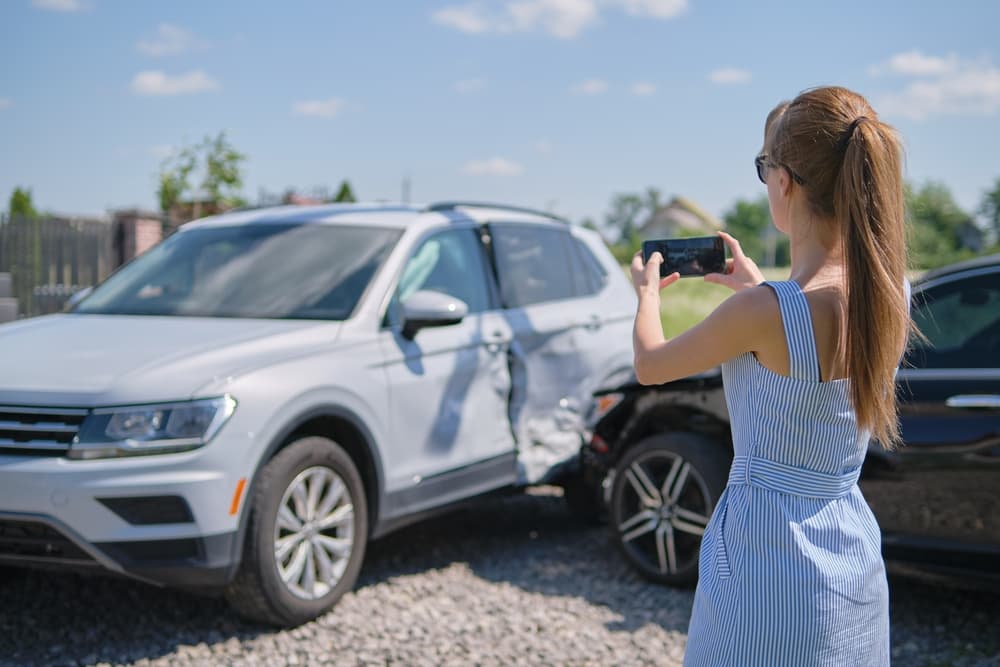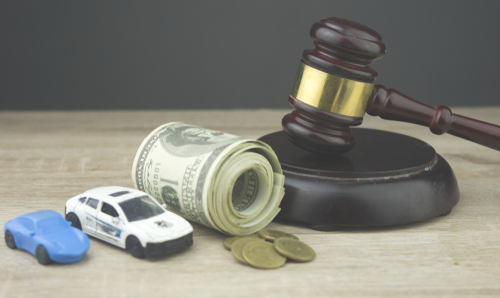Yes. You can sue after a car accident, provided you sustain injuries and compensatory damages, such as medical bills and income losses. However, there may be alternative routes to pursuing compensation that can prove beneficial for you to explore. An experienced car accident lawyer can clarify your legal actions and advise you on how to proceed to secure a financial settlement for your damages. Speak to a local attorney to determine whether a lawsuit or alternative method for recovering compensation is in your best interest. Schedule your free consultation to get started today.
How Long Can I Sue After a Car Accident?
The statute of limitations on how long you can sue after a car accident varies by state jurisdiction, damage type (injury vs. property), and age of the victim. Most states allow two to three years for filing. However, statutes range from one to six years across the nation. In Florida, you have two years (recently changed from four years) from the crash date to sue for a car accident.
Who Can I Sue After a Car Accident?

When an at-fault driver is uninsured, you can sue them personally for your damages. However, it's possible a driver who does not have insurance cannot afford to pay. That means, regardless of being awarded the compensation, you may not see it if they don't have the assets to compensate you. Other possible negligent parties you can sue after a car accident include the following:
- The At-Fault Driver's Insurance Company: You can sue the at-fault driver's insurance company if they use bad-faith tactics, such as refusing to pay a valid car accident insurance claim.
- Trucking Companies: When trucking companies allow inexperienced, unvetted, or unlicensed drivers to operate their vehicles, they may be liable for your damages.
- Manufacturers: The vehicle or part manufacturer may be liable if a faulty vehicle or car part, such as a defective tire, braking, or steering system, causes your collision.
- Government Agencies: When a government employee strikes you in a government vehicle, you can sue government agencies after a car accident.
- Municipalities: When unsafe road conditions, such as potholes, insufficient lighting, malfunctioning traffic lights, and missing road signs cause a collision, you can sue local municipalities responsible for maintaining those things for your damages.
Car accidents involving uninsured motorists or multiple liable parties add more complexity to the case. However, an experienced car accident attorney is equipped to handle those challenges by navigating these complexities every day. Speak to a lawyer to discuss the possibility of multiple negligent parties and how to proceed with a civil lawsuit to recover compensation.
What Do I Need to Sue After a Car Accident?

Regardless of how angry or frustrated a person may be following a collision, there are a few requirements to be able to sue for a car accident. The legal system determines that you must have comprehensive medical documentation, compensatory damages, and proof of negligence. An experienced car accident attorney generally makes the process considerably smoother with significantly larger settlements.
Comprehensive Medical Documentation
Detailed medical documentation is necessary to demonstrate your injuries' severity and impact on your quality of life. Your attorney will work with treating physicians and rehabilitation specialists to ensure adequate reporting. Detailed medical documentation should include:
- Patient information
- Car accident details
- Injury descriptions
- Pain documentation
- Physical examination findings
- Diagnostics (imaging and tests)
- Treatment plans
- Progress notes
- Functional limitations
- Work restrictions
- Psychological impact
Accurate and comprehensive medical records serve as critical evidence in car accident lawsuits, supporting the severity of your injuries and the need for financial compensation. Insurance companies heavily rely on medical records to evaluate the extent and validity of a lawsuit or claim. Attorneys work with medical experts to evaluate and ensure proper medical documentation for your case.
Compensatory Damages
There must be compensatory damages (economic and non-economic loss) for you to sue after a car accident. Also known as actual damages, they are awarded by the court based on the proven harm, injury, or loss suffered by the accident victim. Courts typically consider the fair market value of damages, such as destroyed or damaged property and income losses. They may also award compensatory damages for pain and suffering.
Proof of Negligence
A key component of suing after a car accident is proving the negligence of the at-fault party. There are four elements to proving negligence: duty of care, breach of duty, causation, and damages. In car accidents where the driver is at fault, that translates to the following conditions:
- The at-fault driver had a legal duty of care to operate their car with reasonable care to avoid endangering others, including following traffic and safety laws.
- The at-fault driver failed to exercise reasonable care when operating their motor vehicle by engaging in negligent acts, such as speeding, ignoring traffic signals, or driving distracted or impaired.
- The at-fault driver's negligent actions were the direct cause of your car accident and injuries.
- You suffered compensatory damages as a result of the car accident, including medical costs, lost income, property damages, and pain and suffering.
The evidence in your case is what helps demonstrate another's negligence in a car accident. Evidence that can help establish the four elements of negligence required by the courts include police reports, witness statements, accident scene photos, dashcam and traffic video recordings, vehicle damage reports, and detailed medical records. An attorney can quickly gather the evidence and preserve it before it is lost or destroyed.
An Experienced Car Accident Attorney
A lawsuit without an experienced car accident lawyer is doomed to failure. Just as you wouldn't assume the role of an auto mechanic or physician without the necessary education and experience, you shouldn't attempt litigation without an attorney. An experienced car accident lawyer knows the process of filing a civil lawsuit, entering discovery, preparing witnesses, presenting evidence, cross-examining defense witnesses, and giving closing arguments. They may also advise you to consider alternatives to suing after a car accident.
Alternatives to Suing After a Car Accident
Most of the time, suing after a car accident is not the first path to recovering compensation for damages. An attorney usually begins by filing claims with all liable parties' insurance companies. They can also review your personal policy for coverage that will help alleviate the costs of immediate damages incurred following a collision.
Filing an Insurance Claim With the At-Fault Party's Insurer
Filing a claim through the liable insurance company for compensatory damages is the starting point for most car accident victims seeking compensation. The same parties are liable for damages in an insurance claim as they are in a lawsuit. Also, what you need to sue after a car accident is the same as what you need to file an insurance claim. Your attorney can explain both processes and possible outcomes after discovering the specifics of your case.
Filing an Insurance Claim With Your Insurer
Another viable option for immediate relief and recovering compensation is evaluating your personal policy for coverage that can help. For example, collision coverage can cover the immediate costs of vehicle repairs or replacement. Policyholders with personal injury protection (PIP) may secure compensation for medical bills, income losses, and pain and suffering.
Families may also file against PIP for funeral and burial expenses in the event of wrongful death. Finally, carriers with medical payments (MedPay) can file for reimbursement of their medical expenses up to their policy limits. Your attorney will explore all possible avenues for retrieving financial compensation for your injuries and subsequent damages.
Compensatory Damages You May Recover After a Car Accident

Whether suing the at-fault party or filing a claim through their insurance company, there are economic and non-economic damages you may recover compensation for after a car accident. The economic damages are your monetary losses. Non-economic damages are the intangible losses you experience that don't come with a price tag or receipt. Standard compensatory damages you may seek compensation for following a collision include:
- Medical Costs: The healthcare costs in treating your injuries are recoverable economic damages. These expenses may include hospitalizations, surgeries, general practitioner care, physical therapy, orthopedics, rehabilitation services, medical devices, and pharmaceuticals. Depending on the severity of your injuries, an attorney may also calculate future medical care costs.
- Property Damages: Property damage is another economic damage you can sue for after a car accident. These damages typically entail vehicle repair or replacement, rental car, and rideshare service costs. However, they extend to personal belongings, like glasses and cell phones. They also cover property damages to landscaping, fencing, mailboxes, structures, and homes.
- Lost Income: Income losses due to missed work following a car accident are recoverable economic damages. These often include lost income or salary, overtime, sick leave, and vacation time. However, depending on the impact of injuries, they extend to lost benefits, such as healthcare, retirement, and pension. When injuries prevent you from returning to work at full capacity or in no capacity, your attorney will work with a vocational expert or economist to calculate diminished earning capacity.
- Pain and Suffering: Pain and suffering is a significant non-economic damage that encompasses the physical pain and mental anguish after a car accident. It provides compensation for chronic pain conditions and emotional distress.
- Loss of Enjoyment of Life: A loss of enjoyment of life is non-economic damage that compensates for the inability to enjoy activities or experiences that were pleasurable before being injured. It also includes a loss of social opportunities, motivation, and drive.
- Disability and Disfigurement: Disability and disfigurement are non-economic damages representing compensation for intangible losses relating to physical impairment and scarring. These damages are not easily quantifiable but can still be compensated based on their impact on your quality of life, emotional state, and mental well-being.
- Loss of Consortium: A loss of consortium is the non-economic loss of companionship and affection in a relationship. Depending on the severity of the injuries, it may also include the loss of physical intimacy and the ability to have children. A spouse, domestic partner, child, or parent of the injured or deceased victim may claim it.
- Wrongful Death: Families who lose a loved one in a car accident may be eligible to file a wrongful death claim to recover compensation for their loved one's losses, as well as their own. Wrongful death damages may include the final arrangement costs and the loss of financial support a loved one provides. They also entail the loss of guidance and support and the loss of inheritance for surviving children.
States do not have damage caps on economic loss, primarily because their paper trail quickly proves them and the need to reimburse them. However, some states impose compensatory damage caps on non-economic damages. Your car accident lawyer will clarify local regulations and possible outcomes. Other factors affecting the compensation amount you may expect after a car accident include liability disputes and insurance policy limits.
How an Experienced Car Accident Lawyer Can Help
Most car accident attorneys work within contingent fee arrangements. That means they require no upfront costs and only get paid if and when you do. An experienced car accident lawyer can help maximize your settlement in the following ways:
- Investigating Your Case: A comprehensive case investigation is necessary for proving negligence and establishing liability. Your attorney will gather evidence, including crash reports, medical records, visual evidence of the accident scene and injuries, and witness statements confirming the at-fault party's negligence. They may also work with accident reconstruction specialists to recreate the circumstances of your collision. This process involves scientific principles and mathematics that help determine vehicle speeds, direction of travel, acceleration or deceleration, physical parameters, and other contributing factors.
- Valuing Your Damages: To ensure maximum compensation, your lawyer will thoroughly calculate economic damages and determine non-economic loss. They often consult with experts, such as medical and vocational experts or economists, to validate the extent of injuries and the need to compensate.
- Negotiating Your Settlement: Your attorney will handle all communications and negotiations with liable insurance companies. After valuing your damages, they will send a demand letter, starting the negotiation process. Typically, insurers counter with a lowball offer, and your lawyer will counter back. The process can involve multiple exchanges before all parties agree.
Finally, if you, your attorney and the insurance company cannot agree on settlement terms, they may file and represent you in a civil lawsuit. Most car accidents are settled outside of court.
Call a Car Accident Attorney Today
Consult an experienced St. Petersburg personal injury attorney to discuss your best legal recourse after a car accident to secure a settlement for your losses. Schedule a free case evaluation now.